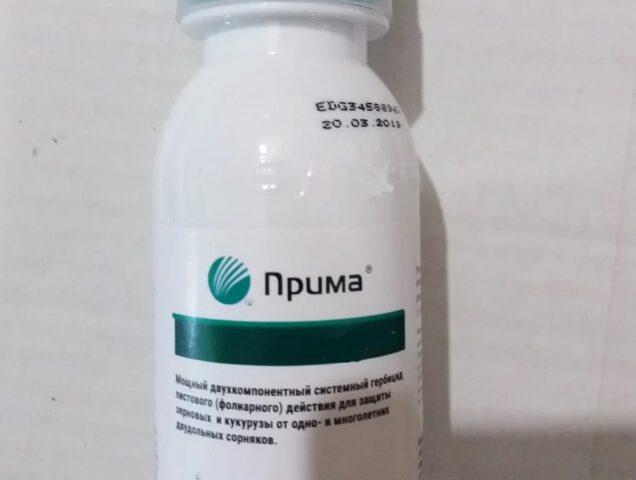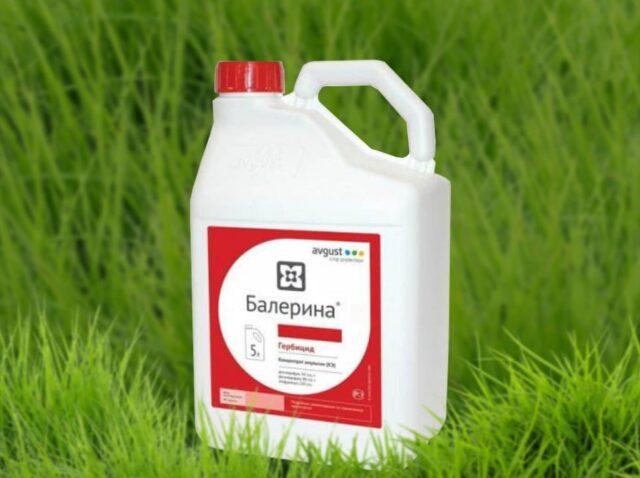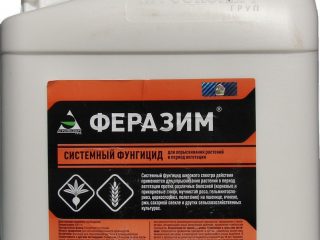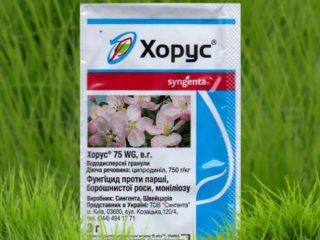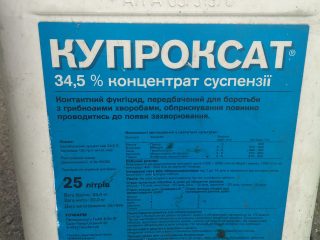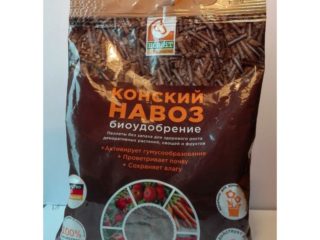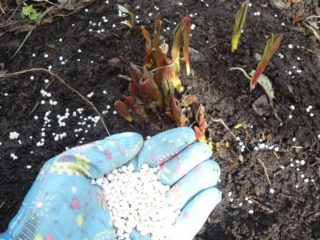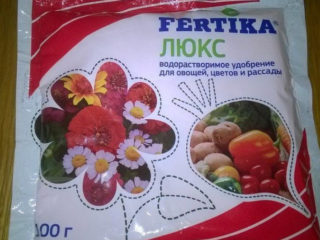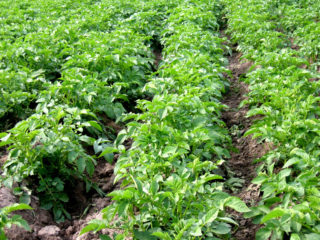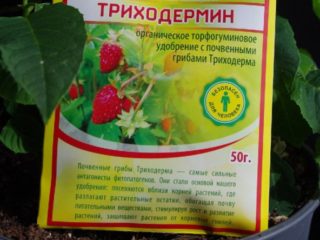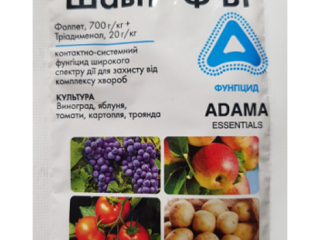Content
- 1 Composition and characteristics of the herbicide Oprichnik
- 2 Principle of operation
- 3 Advantages and disadvantages
- 4 Preparation of working solution
- 5 Consumption rate of herbicide Oprichnik
- 6 Speed and duration of exposure
- 7 Compatibility with other tools
- 8 Security measures
- 9 Analogues
- 10 Conclusion
- 11 Reviews of the herbicide Oprichnik
Herbicide Oprichnik is a systemic drug that can destroy weeds without harming the main crop. In order for its use to be as effective as possible, it is necessary to follow the manufacturer’s recommendations. Also, before use, you should familiarize yourself with what precautions are needed when working with the drug.
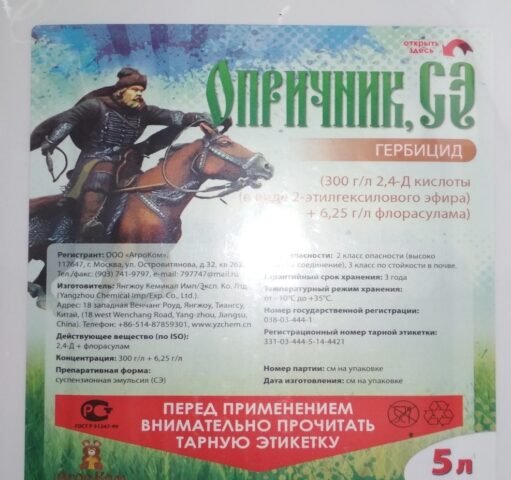
The pesticide Oprichnik is characterized by a wide spectrum of action
Composition and characteristics of the herbicide Oprichnik
The high efficiency of the herbicide is due to the content of two active components: 2,4 D (2-ethylhexyl ether) and florasulam. They successfully complement each other and enhance the destructive effect on weeds. The drug also contains additional components that promote uniform distribution of the active ingredients.
The pesticide is marketed in the form of a suspension emulsion that dissolves in water without sediment. The drug is packaged in five-liter canisters.
The use of the herbicide Oprichnik is justified against annual and biennial dicotyledonous weeds, including those resistant to 2,4-D.
The drug successfully copes with grain crops with:
- bedstraw;
- white pigweed;
- upturned acorn;
- all types of chamomile;
- mountaineer;
- cornflower;
- field thistle;
- average chickweed;
- ambrosia;
- sow thistle
Principle of operation
This drug has a long application period. It can be used from the tillering stage, until the second internode appears on the main crop. After spraying, the active component 2-ethylhexyl ether quickly penetrates the vascular system of the weeds and inhibits photosynthesis. It also causes abnormal cell growth, which leads to tissue deformation and rupture.
Florastulam, after spraying, also penetrates into all parts of the weed and inhibits the synthesis of acetolactate synthase. As a result, the production of vital components for the plant stops.
Advantages and disadvantages
Oprichnik has a lot of advantages, which sets it apart from other herbicides. But the drug also has certain disadvantages. Therefore, you should study the strengths and weaknesses of the pesticide in advance.
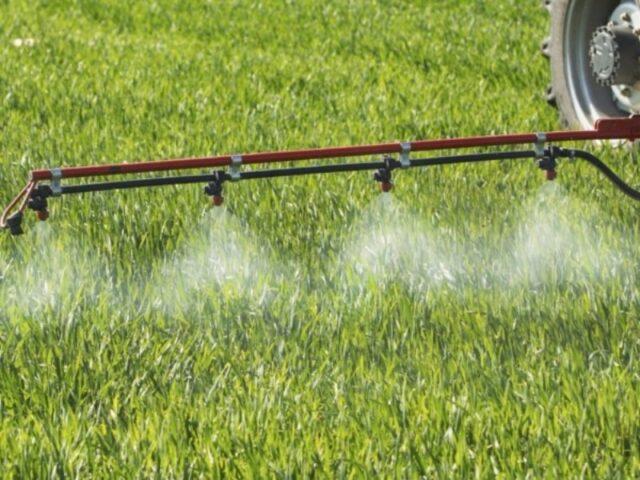
The destructive effect of Oprichnik does not apply to horsetail and cereal weeds
Main advantages:
- fast action;
- wide range of applications;
- long application period;
- does not harm the main culture;
- eliminates resistance;
- does not affect crop rotation;
- Can be used at a temperature of +5 °C;
- economical consumption;
- suppresses the development of overgrown weeds.
Flaws:
- sold in large packaging;
- does not affect weed seeds in the soil;
- when frosts occur, the herbicidal effect is lost;
- increased precautions must be taken.
Preparation of working solution
To control weeds in grain crops, it is necessary to prepare a working liquid based on the herbicide Oprichnik. The suspension should be diluted with water in the sprayer tank. The solution must be prepared immediately before use, as it remains active for ten hours.
Algorithm of actions:
- Fill the sprayer tank with a small amount of water.
- Pour in herbicide.
- Stir until smooth.
- Add the remaining volume of liquid.
- Stir again.
Consumption rate of herbicide Oprichnik
This drug is recommended for treating cereal crops. It should be sprayed in the morning after the dew has dried.
Features of application:
- For spring winter wheat, barley, rye. Treatment can be carried out at the stage of tillering, extension of the main crops into a tube and 5-7 leaves, as well as during the early development of weeds. The permissible consumption rate of the working solution is 200-400 liters per hectare. The waiting period is 56 days.
- For corn. Spraying should be carried out at the stage of 3-5 leaves of the main crop and early development of weeds. The consumption rate of working fluid is 200-400 liters per hectare, depending on the degree of weediness of the crops. The waiting period is 60 days.
During the season, one-time herbicide treatment is allowed. After spraying the product, loosening the soil for the next three days is unacceptable.
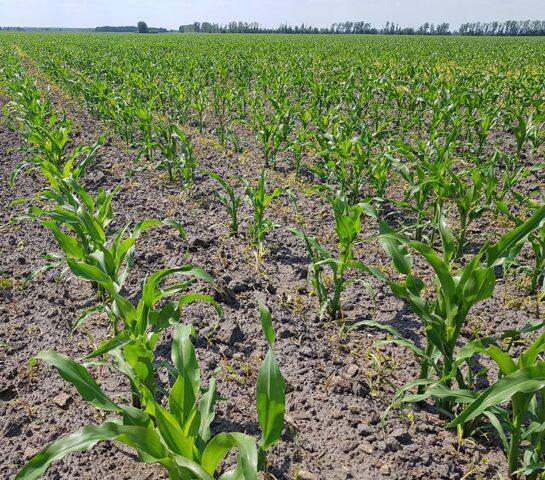
Oprichnik is resistant to rain
Speed and duration of exposure
Within an hour after applying the herbicide SE Oprichnik, weed growth stops.And after a day you can see the first results. They are expressed in chlorosis, marginal necrosis, yellowing of leaves. And the weeds die completely after 2-3 weeks, depending on weather conditions.
Compatibility with other tools
Oprichnik can be combined in one tank mixture with other herbicides to increase treatment efficiency. But before mixing, compatibility testing must be carried out. To do this, mix the working solutions in small quantities. If in this case no precipitation occurs, then the drugs can be used simultaneously.
This drug is combined with nitrogen fertilizers and stimulants, which reduces the number of treatments.
Security measures
This herbicide has a second class of danger for humans and a third class for bees. Before use, you must wear gloves, a protective mask, goggles, as well as clothing and shoes that can cover the skin as much as possible.
During treatment, it is forbidden to drink, smoke, or eat in order to eliminate the possibility of the product entering the digestive tract, which causes poisoning. If the working solution gets on the skin, rinse with running water. At the end of the treatment, you need to take a shower with soap and wash your clothes.
Analogues
If necessary, the herbicide Oprichnik can be replaced with analogues. They have identical effects, but also have some differences.
Analogues of Oprichnik:
- Prima. The drug contains two active ingredients. Designed to protect grain crops, corn, millet, sorghum from 160 types of weeds. The herbicide can be combined with nitrogen fertilizers and growth stimulants. Its use does not affect crop rotation.
Prima – systemic post-emergence herbicide
- Ballerina. The drug is effective against annual and biennial dicotyledonous weeds, as well as bedstraw, chamomile, sow thistle, and milkweed. It can be applied to the shoots of the main crop. The first results are noticeable after a day, and completely destroys weeds after 2-3 weeks. The composition includes the same active ingredients as those of Oprichnik.
Ballerina does not penetrate cereal grains
Conclusion
Herbicide Oprichnik belongs to the category of fast-acting agents. It is able to cope with many common weeds in cereal crops. But in order for treatment with the product to give the expected result, it must be carried out within a clearly defined time frame in the instructions and the dosage must be followed.
Reviews of the herbicide Oprichnik
